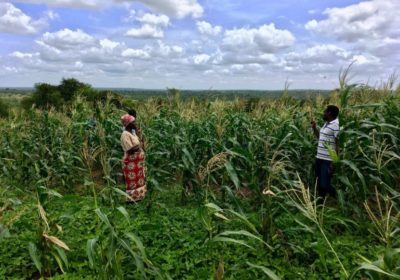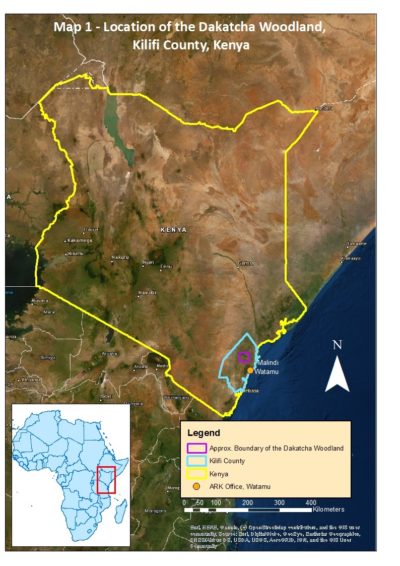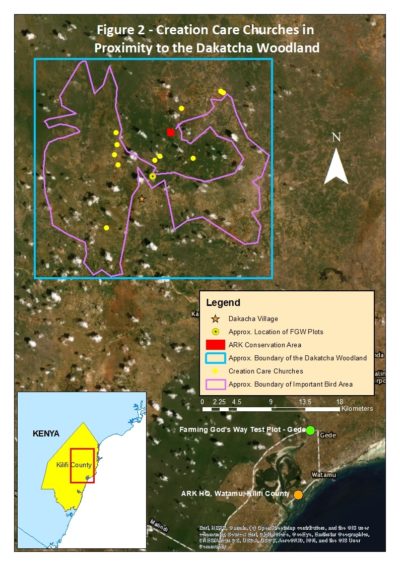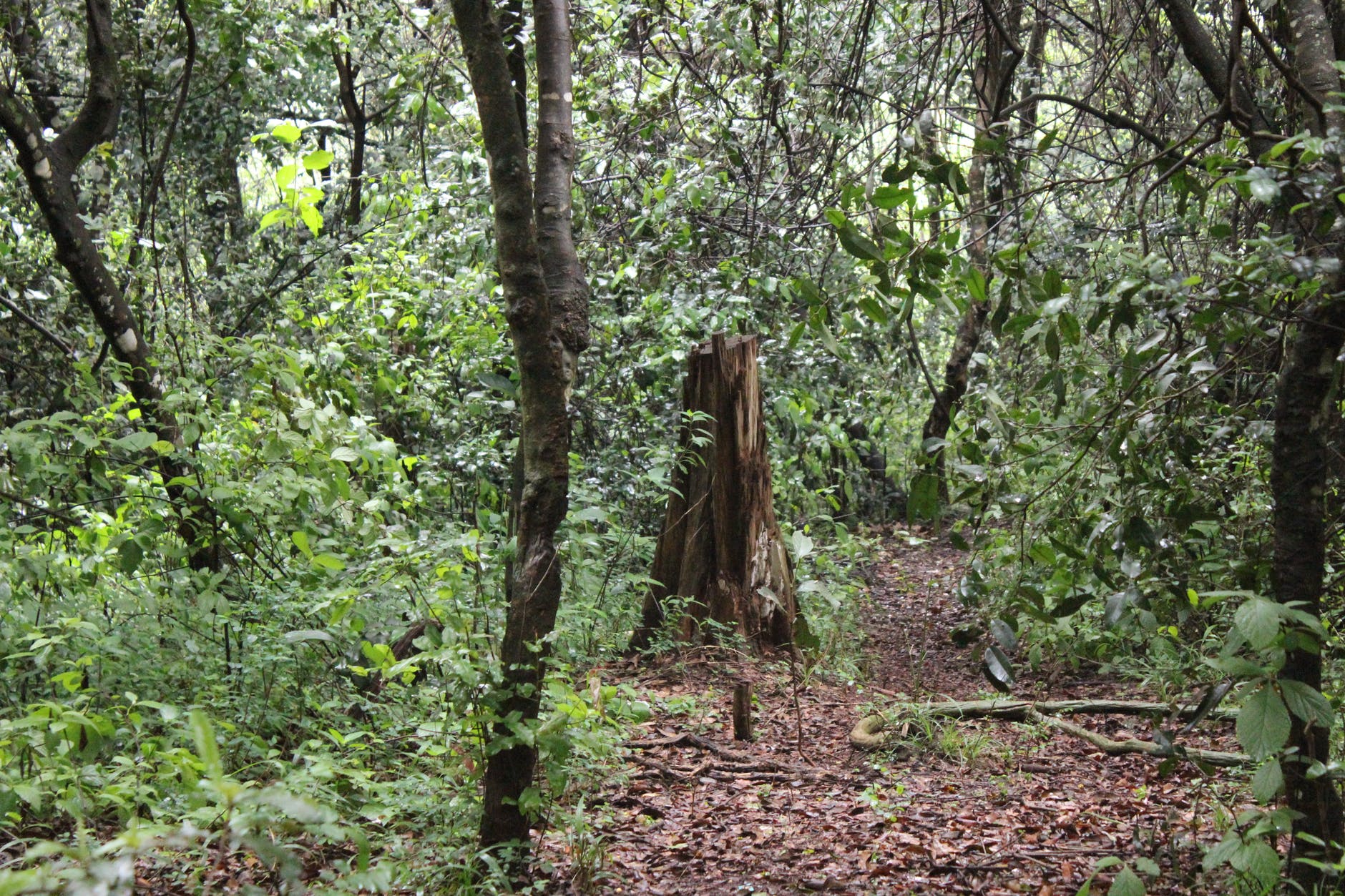Deep in the Dakatcha Woodland, A Rocha Kenya is putting their faith into action to help save the globally recognised forest.
The idea that faith could be significant in achieving conservation goals has only recently gained traction in mainstream conservation practice. Programs such as the UNEP’s Faith for Earth Initiative have only been developed within the past decade, yet demonstrate the ground that faith-based conservation is gaining on the agendas of global conservation organisations. However, the linkages between faith and conservation have long been recognised by many of the world’s religions. For example, the Islamic principles that form the basis of the Shariah, or the laws of Islam, advocate for forest conservation and the protection of animals. Similarly, essential to the Hindu faith is the belief that all life is sacred. This reverence for the natural environment often led to the creation of sacred sites, where nearby forests, animals and water were protected.
Likewise, the linkages between Christianity and conservation have long been recognised, and have more recently been illuminated by the work of A Rocha, a Christian conservation organisation (and Conservation Optimism member) working to protect vulnerable species and habitats around the globe. Founded in the early 1980s, A Rocha carries out community conservation projects that, alongside achieving practical conservation goals, demonstrate that caring for nature is a fundamental part of the Christian faith. Since its founding, A Rocha has expanded to include 21 A Rocha organisations around the world.
As a Christian, and a recent MSc student in Environment and Development at the University of Edinburgh, I was (and still am!) keen to understand better the role of faith-based relationships in conservation. After hearing about A Rocha Kenya’s (ARK) work and many planning meetings, I left Edinburgh for the Kenyan coast with three questions in mind: How do faith-based relationships materialise in the context of conservation? How are faith-based relationships maintained? How are faith-based relationships mobilised for conservation work?

ARK staff talking with a Farming God’s Way participant in the Dakatcha Woodland, Kenya. Used with permission.
Setting the Scene
In Kilifi County, Kenya, ARK is working to protect the Dakatcha Woodland, a sprawling forest 50km northwest of Malindi on Kenya’s central coast. Covering over 188,000 hectares, the Dakatcha Woodland has been recognised as a Key Biodiversity Area as it contains globally threatened species including the golden-rumped sengi (Rhynchocyon chrysopygus). Despite this, the Dakatcha Woodland lacks formal protection and remains vulnerable to threats such as charcoal production. Given this, ARK is putting their faith into action by working together with local churches to protect the Dakatcha Woodland. Like all A Rocha organisations, the work of ARK is done as a response to God’s love for creation. Recognising God as the creator of all life, ARK works to enact the Christian environmental stewardship ethic of creation care, which views sustainability, conservation and environmental protection as not optional, but essential, to the life of any Christian.

Faith-Based Relationships
Despite the relative remoteness of the Dakatcha Woodland, the area is dotted with nearly a dozen churches. Given the expanse of the Dakatcha Woodland, how do these faith-based relationships materialise? To answer this question, I spent nearly a month with ARK staff in June of 2019 conducting interviews and visiting the Dakatcha Woodland.
Interestingly, relationships materialise around factors of proximity and diversity. ARK endeavours to partner with churches that are proximal to ARK’s conservation reserve within the Dakatcha Woodland or the habitats of endangered species. Additionally, ARK seeks to develop relationships with churches that are diverse regarding denomination or geography. Because ARK is not aligned with any particular Christian denomination, their relationships with churches are intentionally ecumenical. Geographically, ARK seeks to build relationships with churches over a wide extent in hopes of cultivating change throughout the Dakatcha Woodland.
Once a relationship is formed, it is maintained through mainly faith-based activities. After obtaining permission from the pastor of the church, ARK begins a month-long creation care themed sermon series. Following this foundational teaching, a Bible study is subsequently led by ARK staff. Intended to last for up to a year, these studies are a crucial way for ARK staff to deepen relationships with participants and reinforce the concept of Biblical environmental stewardship. However, teaching alone will not save the Dakatcha Woodland. How then are these faith-faith relationships mobilised for conservation action?

Faith-Based Conservation
The main way ARK staff encourage participants to take action is through Farming God’s Way (FGW). Using the three pillars of conservation agriculture (zero tillage, mulching and crop rotation) alongside six Biblical principles, FGW provides an agricultural technique that both increases food security and reverence for God’s creation. Because of the comparatively small amount of land and material input required (FGW requires no fertiliser or pesticides), the conservation impact of FGW is evident.
However, perhaps the main conservation benefit of FGW is its role in the cultivation of a uniquely Christian conservation ethic. Using FGW to teach about creation care and biodiversity conservation, it is ARK’s hope that this will influence the way participants think and act towards the Dakatcha Woodland and endangered species therein, a transformation that would yield conservation benefits for generations. It remains too early to discern the quantitative effect that engaging with faith groups has had on protecting the Dakatcha Woodland but what has been made clear is that Christians throughout the area have responded to the message of creation care positively and with a newfound passion for environmental stewardship!
Faith + Love = Hope for Conservation?
As shown above, conservation initiatives can be carried out in faith communities as a response to one’s faith in and love for God. From this place of faith and love, faith-based conservation can provide real hope to nature and people at a time when hope seems hard to find.
Although this post has chronicled conservation in a Christian context, valuable takeaways remain for people of all faiths or none. First, as the work of ARK demonstrates, faith can have a key role to play in conservation practice. Not only can faith motivate conservation action, it can also provide the framework for implementation. Second, as all faiths are intended to be practised in community, they provide the social networks necessary for disseminating environmental conservation information.
Finally, faith can provide hope! As we are constantly bombarded with news about our changing climate and its myriad effects, it’s easy to become apathetic towards the bleak future forecasted for our planet. However, faith can provide hope that a better future lies ahead for nature and people alike, hope which has the power to motivate conservation action today.


